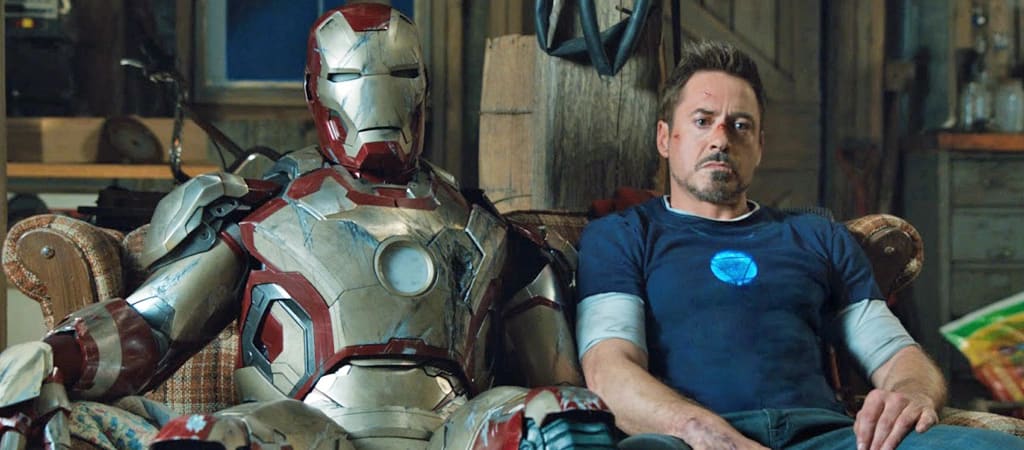4 Reasons Why MCU Fans Get So Defensive When their films are criticized.
It's more complicated than you think.

One of the most recent phenomena is the reaction toward fans of the Marvel Cinematic Universe (or "MCU") for being defensive toward the criticism it has received from directors like Martin Scorsese and Francis Ford Coppola. It is common for people to lambast these fans for "being dramatic" or "taking things too personally." However when we look at things from an empathic lens, its easy to understand where this resentment comes from. Here are 4 (possible) reasons why MCU fans become so defensive when their films are criticized.
1.) "We Matter, Don't We?"
Simply put, it's human nature for people to want their stuff affirmed by people in power. It doesn't take a genius to recognize that. When one of the most revered filmmakers out there says that your films aren't cinema, it's gonna hurt people. This is in no way meant to tear down Director Martin Scorsese, for I am sure he did not go out of his way to blast the MCU films. However the news headlines went out of their way to blow it out of proportion, as well as directors like Francis Ford Coppola who were outright hostile compared to the relatively measured Scorsese.
2.) "What's Wrong With Familiarity?"
The die-hard MCU fan doesn't typically understand why there's an issue with the formula. Some MCU fans are self-aware enough to empathize with the points that Scorsese was making. However the diehard (ride or die) MCU fan sees their films as perfectly conveying the sort of psychological depth that Scorsese says that they lack. To these fans, Scorsese's words were a rebuke toward all of the personal investment that they had put toward characters like Tony Stark (Iron Man) and Natasha Romanoff (Black Widow). It is important to understand where these fans are coming from; it can be easy to forget the sheer attachment that these people have toward such characters.
Scorsese was speaking from a meta-perspective which in essence says, "These films are all assembly line productions that can't actually dig deep because they're mainly concerned with setting something else up." To a filmmaker like Martin Scorsese, this robs each film of lasting emotional impact. To fans, the MCU formula means "safety" and "familiarity" while to Scorsese it means "risk-adverse" and "stale." These are two completely different and valid perspectives. Unfortunately, there are embittered fan bases on both sides of the argument. Directors like Francis Ford Coppola have gone out of their way to call the films despicable while siding with Martin Scorsese. This sort of vicious language would be destined to enrage a good deal of the MCU fanbase.
3.) "We're Finally On Top. Now You Want To Force Us Back Down?"
Believe it or not, there was a period in time when these characters weren't taken seriously by the public at large. Before nerd culture went mainstream there were films like "Blade" and "X-Men," which seemed to go out their way to avoid any visual association with their comic book origins. The early 2000s felt the need to clothe the X-Men in black Matrix inspired leather in an attempt to justify itself to audiences. The WB's Smallville television show was out there doing the "No flights, no tights" thing. People were generally embarrassed to embrace the comic book superhero aesthetic. Now that it has finally been embraced by the mainstream, fans old enough to remember those days are understandably possessive about it. Their mindsets are likely, "Our stuff is finally being respected, and these people have to go shit on them?" While an admittedly reductionist take, one would not blame these fans for clenching tightly toward the success of the MCU. To these people, it represents a lifetime of validation that they had been seeking.
4.) "What Do You Mean "Not Cinema?!" Are You Calling Me Stupid?"
Martin Scorsese's use of the word "cinema" clearly didn't translate well to headlines. He would later clarify what he meant in a later article, but this unfortunately only seemed to muddle the waters. It is important to recognize that the context of reading carefully crafted text online can influence how we perceive words.
When I imagine Scorsese talking in person, I can imagine someone who speaks from pure enthusiasm about the stuff he grew up with. On paper, his words may sound like a cruel rebuke. However it's hard to convey tone with typed words. I think if we were having coffee with Scorsese, he would come off as perfectly gentlemanly and respectable about his beliefs. Thus it is important to understand that anything can sound harsh when it's read on a headline. We cannot often see a person's humanity through an article designed to get clicks. Nor can we see the humanity of many of these so-called "defensive" fans. Therefore it is necessary to look past the words that are designed to get clicks and truly do our best to see the human beings underneath the arguments. If we take the time to do so, we may understand that that the other side is not as different from us as we initially believed.
About the Creator
Humphrey Kaye
Just a guy on the outside who observes a lot of things. Figured I could speak up.






Comments
There are no comments for this story
Be the first to respond and start the conversation.